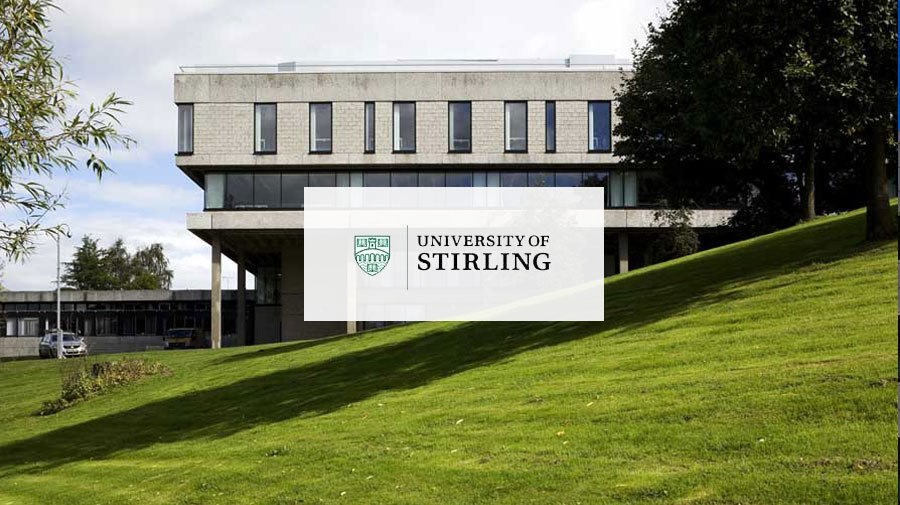BSc (Hons) Ecology
People have an enormous impact on their environment through resource use, habitat degradation, and climate change. Understanding how our actions impact the ecological balance across the planet has never been more important.
We’ll give you a rigorous introduction to the science of ecology. You’ll understand how animals, plants, fungi and microorganisms interact with their environment, as well as the relationship between people and the rest of the biosphere.
This course covers the core conceptual issues of Ecology in its broadest sense, but also provides hands-on opportunities for learning transferable skills and analysing ecological relationships across all types of organisms.
We place great emphasis on practical training, hands-on experience and preparation for a wide range of careers in conservation. Fieldwork is an essential and enjoyable part of this degree course. Stirling’s campus location is an ideal base from which to make field excursions, whether to study lekking Black Grouse in the Highlands, the growth of trees on the sides of the Ochil Hills, or the distribution of animals on the Forth Estuary. You will also have the choice of three overseas field trips, currently based in Portgual, Spain and Gabon. Our inspiring 7-day field ecology and animal biology course in the CERES Field Centre in Aljezur, Portugal, introduces students to the process of designing, conducting and analysing your own scientific project. Students attending the week-long field course in Spain stay near Almeria, one of the driest parts of Europe. Through a series of excursions and intensive field projects students will examine environmental processes in arid environments. Students visiting Lope National Park in Gabon will be introduced to the real-time challenges of managing large protected areas, and cover ecological and socio-economic theories in tropical forest ecology and conservation.
Whether you are interested in pursuing an academic career, or want to participate in the practical solution of ecological problems, we’ll provide you with the tools and concepts you need to make a difference.
Intakes
- Sep
Application Processing Time in Days: 7
Minimum English Language Requirements
| English Level Description | IELTS (1.0 -9.0) | TOEFL IBT (0-120) | TOEFL CBT (0-300) | PTE (10-90) | |
|---|---|---|---|---|---|
| Expert | 9 | 120 | 297-300 | 86-90 | |
| Very Good | 8.5 | 115-119 | 280-293 | 83-86 | |
| Very Good | 8 | 110-114 | 270-280 | 79-83 | |
| Good | 7.5 | 102-109 | 253-267 | 73-79 | |
| Good | 7 | 94-101 | 240-253 | 65-73 | |
| Competent | 6.5 | 79-93 | 213-233 | 58-65 | |
| Competent | 6 | 60-78 | 170-210 | 50-58 | |
| Modest | 5.5 | 46-59 | 133-210 | 43-50 | |
| Modest | 5 | 35-45 | 107-133 | 36-43 | |
| Limited | 4 | 32-34 | 97-103 | 30-36 | |
| Extremely Limited | < 4 | < 31 | < 93 | < 30 |
Job Opportunity Potential
Many graduates progress to scientific careers in research or advisory roles in government agencies and non-governmental organisations. However, the skills learned in the Ecology degree are fundamental to those required in a wide range of other careers. Our graduates have progressed to a range of jobs in academic and applied ecology, including jobs as:
- environmental consultant
- environmental education officer
- environmental manager
- university and government researchers
- nature reserve managers
- policy makers and consultants with both environmental agencies and conservation bodies,
- natural history film maker
- journalist
- nature conservation officer
- recycling officer
- sustainability consultant
- waste management officer
- water quality scientist
Ecology underpins sustainable development, and, as such, it’s becoming mainstream in policy development and planning.
The skills learned in the Ecology degree – such as the ability to gather, interpret, synthesise and present information in an interesting and original way – mean that you’ll be well-qualified to work in a broad spectrum of careers.
PSW Opportunity
2 years of PSW available after completion of Degree program
Admission Requirement / Eligibility Criteria
India
Year 1 entry – Four-year honours
Direct Entry to 1st Year:
Year 12 Grade – cumulative score of 65% and above.
Year 2 entry – Three-year honours
Advanced Entry to 2nd Year:
Year 12 Grade – cumulative score of 75% and above. Advanced entry is possible on a range of courses. Student applications will be considered on a case by case basis.
Please note that advanced entry options for students who have scored 35 in the International Baccalaureate or GCE A-Levels ABB in one sitting will also be considered on a case by case basis.
Nepal
Year 1 entry – Four-year honours
The University welcomes applications from students who have successfully completed the HSC Year 12, with a minimum of 75%.
Year 2 entry – Three-year honours
SQA Advanced Highers
ABB
GCE A-levels
ABB
IB Diploma
35 points
Essential subjects
To include Biology and one of Environmental Science, Geography or Geology.
Sri Lanka
Year 1 entry – Four-year honours
The University welcomes applications from students holding BBC at A level for entry to most undergraduate programmes. Please note that some programmes may also stipulate subject specific entry criteria.
Year 2 entry – Three-year honours
SQA Advanced Highers
ABB
GCE A-levels
ABB
IB Diploma
35 points
Essential subjects
To include Biology and one of Environmental Science, Geography or Geology.
For More Information Please Connect Our PSA Counselor
- Course Code: C180
- Course Type: Full Time
- Course Level: Bachelors/UG Degree
- Duration: 04 Year
-
Total Tuition Fee:
62400 GBP
Annual Cost of Living: 9207 GBP
Application Fee: N/A
Similar Programs
- BA (Hons) Psychology at University of Stirling
- BSc Paramedic Science at University of Stirling
- BA (Hons) Sports Studies at University of Stirling
- BSc (Hons) Sport and Exercise Science at University of Stirling
- BSc (Hons) Psychology at University of Stirling
- BSc (Hons) Nursing – Adult at University of Stirling

